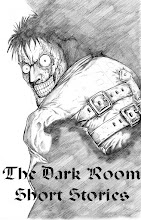I need to blog about something other than IMDB comments for that way madness lies. So last night I realised what a wonderful gift the mobile phone is to a writer.
I was watching Beneath which is one of those throwaway horror films about someone who's a bit loony investigating their past to confront the source of their lunacy - cue lots of spooky hallucinations to cover the fact that not much is really happening. The Poe inspired ending was quite good though, and it was under 80 minutes - a rare bonus these days. Anyway, the point is much use was made of the protagonist's mobile phone - to the point where she really couldn't have progressed through the story without it.
Obviously she phoned people with it and crucially other people phoned her when nothing much was happening and the plot required a boost. The mobile phone lets any one of your characters talk to any of your other characters at any time - which again sounds like stating the obvious. But it's quite a big thing that I often take for granted - the script I've just finished features at least half-a-dozen mobile phone conversations and it's so much easier than moving you characters to a different location so they can get to a landline or whatever.
But having your characters so easily contactable is also a double-edged sword as it often gives them an easy way out of perilous situations - how many horror films now have to set up that there's no signal in whatever remote location the film is set to make the phone useless?
Anyway, I'm not the first person to draw attention to this - someone I was at university with even wrote a dissertation on the subject. Mobile phones seemed like a new and wonderful thing back then. But now there are even more possibilities!
When attempting to record vital clues from a file while a doctor's back is turned, Nora Zehetner's character in Beneath takes a photo of said document with her mobile - far more efficient and slightly less suspicious than taking notes. Ignoring the fact that it would've been even easier and much less suspicious to memorise the information (which was only a person's name after all), this is a good example of other ways the mobile phone can help the writer out of tricky situations.
Later on in the film, when exploring the secret passages of an old house, she uses the phone as a light source. No need for clumsy torches anymore, although they did have the advantage that they could also be used as a weapon. I can't see hitting someone with a phone doing much damage. Plus it means an end to the classic low battery tension moment - I'll miss that, somehow violently tapping a phone when the batteries start to go doesn't have the same effect. Also, seeing as we're now eradicating smoking from our screens (and eventually history) it would be inconceivable that anyone would carry a Zippo around these days.
My phone is 8 years old and has no camera powers. I am also not sure the fairly dim light would help see my way through any secret passages. If I ever have to confront some supernatural source of madness in my past I will be in serious trouble.
But surely this is only beginning. The fact that you can access the Internet from your phone means we no longer need libraries in films and no more shots of people tapping away at large computers. Police procedurals and conspiracy thrillers are already using the phone as a convenient tracking device. Soon there won't be any need for running about at all and films will feature various characters going on complex and exciting adventures without ever leaving their living rooms.
Suddenly I want to set every film I write in the 1950s.
Wednesday, 14 January 2009
Subscribe to:
Post Comments (Atom)


2 comments:
Not to start nitpicking but I like that fact with this post you start off with a "Yay phones" outlook and then by the end you've turned into a "Nay phones" person.
I agree though with everything you said. I think we should write that film.
Much like my reaction to phones in real life.
Post a Comment